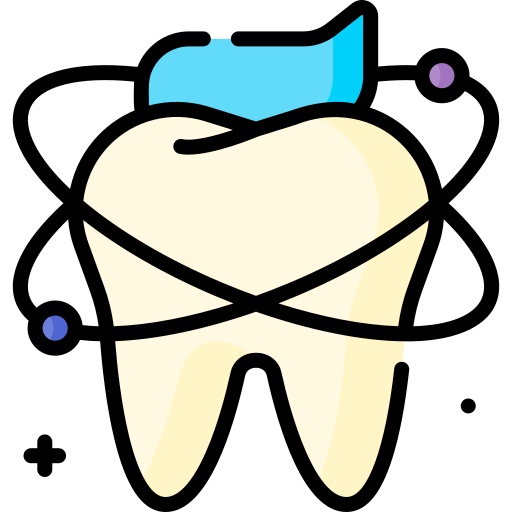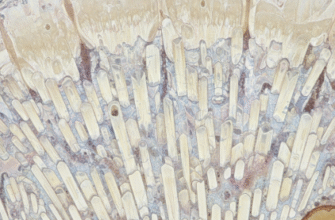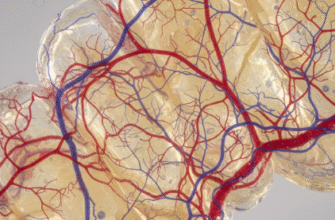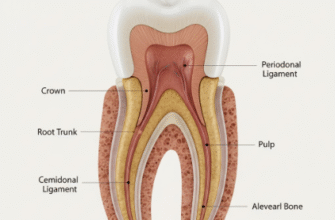That unwelcome whiff, the one that makes you subtly check your own breath or step back from a conversation, is something most of us have encountered, either from ourselves or others. Bad breath, or halitosis as it’s technically known, can be a source of embarrassment and social anxiety. While mints and gum offer a fleeting fix, understanding the root causes is the key to truly addressing it. The good news is that many culprits are quite common and often manageable with a bit of know-how.
The Usual Suspects: What You Eat and Drink
It’s probably no surprise that the journey to understanding bad breath often starts with what we put into our mouths. Certain foods are notorious for leaving a lingering reminder long after the meal is over. Think of potent ingredients like garlic and onions. When these are digested, their sulfurous compounds are absorbed into the bloodstream, travel to the lungs, and are then exhaled. This means that even diligent brushing and flossing right after eating them might not completely eliminate the odor, as it’s coming from deeper within, so to speak, via your breath.
Spicy foods, exotic cheeses, and even some fish can have a similar effect. The aromatic oils in these foods can stick around in the mouth and contribute to a less-than-fresh scent. It’s not just about the immediate aftermath; these compounds can hang around for hours. Coffee and alcoholic beverages are also frequent offenders, though their mechanism is a bit different. Both can contribute to a drier mouth environment, which, as we’ll see, is a prime condition for bad breath to flourish. Alcohol’s scent itself can also linger on the breath.
The Oral Hygiene Connection: More Than Just Pearly Whites
This is a big one. If you’re not on top of your oral hygiene game, you’re essentially rolling out the welcome mat for odor-causing bacteria. These microscopic critters thrive on the food particles left behind in your mouth after meals and snacks.
The Plaque Problem
When food debris isn’t cleared away effectively through brushing and flossing, it begins to collect, especially between teeth and along the gumline. Bacteria in your mouth have a feast on these leftovers, and as they break down these sugars and starches, they release unpleasant-smelling gases. These gases, often volatile sulfur compounds (VSCs), are the primary source of many cases of bad breath. This bacterial party also leads to the formation of plaque – that sticky, colorless film that constantly forms on your teeth. If plaque isn’t removed regularly, it can harden into tartar, making it even more difficult to clean and providing more surface area for bacteria to colonize.
Think of it like a microscopic compost heap in your mouth. The longer food particles and bacteria are left undisturbed, the more potent the resulting odors can become. This is why dentists and hygienists emphasize the importance of brushing at least twice a day and flossing daily. Flossing is particularly crucial for dislodging particles and plaque from between teeth and under the gumline, areas your toothbrush bristles often can’t reach effectively.
Don’t Forget the Tongue!
Your teeth might be sparkling, but what about your tongue? The tongue’s surface, with all its tiny bumps and grooves (papillae), is a perfect hiding spot for bacteria, food debris, and dead cells. In fact, a significant portion of bad breath can originate from a poorly cleaned tongue. These trapped particles decompose, releasing those familiar VSCs. You might notice a white or yellowish coating on your tongue; that’s often a visible sign of this buildup. Gently cleaning your tongue with a toothbrush or a dedicated tongue scraper can make a remarkable difference in freshening your breath. It physically removes the bacteria and debris that contribute to odor.
Scientific consensus points to the oral cavity as the origin for the vast majority of chronic bad breath cases. The culprits are typically anaerobic bacteria, which thrive in low-oxygen environments. These microorganisms metabolize proteins found in food debris, saliva, and shed oral tissues, producing volatile sulfur compounds that are responsible for the characteristic malodor.
When Your Mouth Feels Like a Desert: Dry Mouth (Xerostomia)
Saliva is your mouth’s unsung hero. It does more than just moisten food for easier swallowing; it plays a vital role in keeping your mouth clean. Saliva helps to neutralize acids produced by bacteria, wash away food particles, and limit bacterial growth. When saliva production decreases, leading to a condition known as dry mouth or xerostomia, the mouth’s natural cleaning mechanisms are impaired. This allows bacteria to multiply more freely and dead cells to accumulate on the tongue, gums, and cheeks, all of which can decompose and cause bad breath.
Several factors can contribute to dry mouth. Breathing through your mouth, especially while sleeping, is a common cause. Certain medications, including some antihistamines, decongestants, and diuretics, can have dry mouth as a side effect. Dehydration, not drinking enough water throughout the day, can also reduce saliva flow. For some, dry mouth is a persistent issue, and if you suspect it’s affecting you, managing it can be a key step in improving breath freshness. Sipping water regularly and avoiding dehydrating drinks like excessive caffeine or alcohol can help.
Tobacco’s Toll on Breath
The use of tobacco products is a well-known cause of bad breath, and it’s a particularly stubborn one. Smokers often develop a distinct “smoker’s breath,” which is a combination of the smell of stale smoke and the effects tobacco has on the oral environment. Tobacco use dries out the mouth, reducing saliva flow and creating an ideal breeding ground for odor-causing bacteria, as discussed earlier. Furthermore, tobacco products themselves leave chemical residues in the mouth that contribute to the odor. Chewing tobacco is no better, as it also introduces strong odors and irritants into the mouth.
Beyond the immediate smell, tobacco use significantly increases the risk of gum disease. Gum disease itself is a major cause of persistent bad breath due to the inflammation and bacterial infection associated with it. The chemicals in tobacco can also stain teeth and dull the sense of smell, meaning smokers might be less aware of their own breath issues.
Other Potential Culprits to Consider
While the above are the most frequent offenders, a few other situations can contribute to less-than-pleasant breath.
Morning Breath: An Overnight Phenomenon
Ever wondered why your breath is often at its least charming when you first wake up? This is “morning breath,” and it’s very common. During sleep, saliva production naturally decreases significantly. This reduction in saliva flow, combined with the fact that your mouth is relatively inactive, allows bacteria to proliferate and food particles from the previous day to break down, leading to the characteristic morning odor. Mouth breathing during sleep can exacerbate this effect by drying out the oral tissues even more. A good brush and tongue cleaning upon waking usually takes care of it.
The Hidden Nooks: Tonsil Stones
Sometimes, small, odorous particles called tonsil stones (or tonsilloliths) can form in the crevices of the tonsils. These are made up of bacteria, dead cells, mucus, and food debris that get trapped and calcify. While not always visible, they can release a strong, unpleasant smell and contribute to bad breath. They are not typically a serious issue but can be a recurring source of odor for some individuals.
Understanding the diverse causes of bad breath is the first step towards managing it effectively. For many, simple adjustments to diet, improvements in oral hygiene practices, and ensuring adequate hydration can make a world of difference. If bad breath persists despite your best efforts with home care, it’s always a good idea to consult with a dental professional. They can help identify any underlying oral health issues and provide tailored guidance. After all, fresh breath contributes not just to oral health, but also to confidence in our daily interactions.








